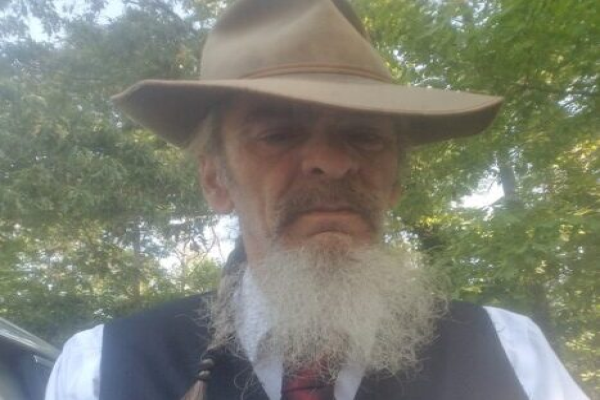It was a warm, beautiful spring day when I became acutely aware of my place in the food chain.
I was on a dream trapping job — exclusive access to a huge millpond with multiple outflows into the Cape Fear, land that no one had hunted or trapped in decades, and a client who was more than willing to pay to keep the waterways clear. With the price of beaver hides literally less than a middling raccoon, I was happy for the extra work.
The beaver were fat and dumb, I was strong, and it was warm enough to go swimming. If I could have somehow eliminated the early mosquitoes, it would have been close to Heaven.
I decided to wade and swim instead of walking across the dam to check my traps. The water was a little deeper than I thought, but it was cool and tannin brown and lovely. I didn’t bother to strap on my pistol, since it didn’t enjoy the water as much as I did.
I had no inkling there were gators in that water, and nobody informed me otherwise.
If Norman Rockwell ever did a picture of a Southern beaver trapper, that day would have been the model. I had two big, fat flattails waiting for me. I reset, then tied the critters to my widow-line (that’s a rope one can use to open a trap, pull oneself out of a bad spot, or assist the rescue workers recovering a trapper).
The swim/wade back to the truck was easy, with the beavers floating along behind me, and I was enjoying the afternoon more than I had a right to when I felt and heard that sound.
It was as primordial as the old cypress trees, dripping with moss, and the awkward yet beautifully exotic wood storks flying around their favorite tree. The sound started with a low hiss, then rose to something like a growl. It was followed by a bellow straight out of a dinosaur movie. What was so disturbing was that you could feel every bit of the noise through the water as well as hear it.
I suddenly realized I was not alone, and all I had was a knife, a potato rake, and prayer between me and an alligator. On top of that, I was pulling not one but two snacks behind me.
Obviously, I made it safely back to the bank. I didn’t even see the gator, although there was a very suspicious looking log a hundred feet behind me.
I saw a big critter in the same area a few days later, when I a couple of my traps were destroyed. After that, I figured not to take advantage of the client, and let nature takes its course until the water chilled and the leaves fell that autumn. I did find a slide that indicated the monster I heard was more than large enough to have eaten me and my beavers, had he been of a mood.
That day and a few other gator experiences gave me a deep respect for the big ol’ saurians, which Bertram described as “dangerous beasts”. They’re just another one of God’s incredible creations, albeit they happen to be true apex predators that wear leather coats and taste more like fish than chicken.
I respect a gator; I will give it the right of way, and I will avoid interacting with it. I tend to respect anything that would happily eat me, given the chance.
And that is why I cannot understand why folks insist on feed the danged things.
Decades ago, a Wildlife officer showed me a picture of a little kid standing in front of the open jaws of a gator at Orton Plantation. The child looked like he wasn’t as tall at the open jaws into which he was dropping a piece of chicken. The officer seized the Polaroid photo and cited his parents, who were from a state that doesn’t have alligators. The father roundly cursed him.
I’m old enough to member Charlie and Charlene at the battleship in Wilmington; for many folks, tossing treats to the gators was a big part of their trip. When we had one living in the pond at our old farm, we unwittingly acted as a pizza delivery service by releasing road turtles at our pond. Gatorella got used to it. We were horrified when we found out, and immediately stopped. She would hiss when she saw our vehicles but no longer got free turtles. We left her alone.
As much fun as it can be to feed and watch critters — no, we didn’t mean to feed our gator — it’s not a good thing for anybody.
The concept is simple, whether it’s a stray dog, a feral cat, a possum or an alligator: if you make food available, wild things will come to visit and expect to be fed, directly or indirectly. If you don’t believe me, throw a handful of French fries at the next flock of seagulls or puddle ducks you see.
Animals don’t see “feeding” the same way we do. Animals are opportunistic. They won’t work harder than necessary for a meal. Predators, like gators and coyotes, are drawn to where prey animals gather. For gators, that means fish, coons, possums, rats, ducks and turtles.
A few weeks back, a girl at Lake Waccamaw was either bitten or clawed by a gator; opinions differ on whether the gator was trying to get away or if he was hunting. I know the family in passing, and they’re not the type to leave scraps out for scavengers, or to toss fish offal into the water. I am willing to bet that the big ol’ critter has been hanging out around humans for years, since even if people didn’t feed him, somebody likely fed the scoters and puddle ducks and turtles that said gator liked to eat. The big rascal, anywhere from 50 to 75 years old, had to be put down because he was entirely too comfortable around people.
There are those who are now calling for the elimination of alligators, to have a season on them similar to that for wild hogs or coyotes; there are others who insist on the exact opposite, folks who aren’t the least bit upset that a gator hurt someone, and in their hearts wish for worse.
God gave man dominion over the animals in Genesis; that doesn’t mean we should worship them or treat them cruelly. He gave us some to eat, some to use for work, some to wear, some to make us laugh, and some to keep us humble.
Poor management of resources gave us too many deer and the proliferation of coyotes; poor management virtually wiped out some other species which had to be brought back through careful stewardship.
Simply moving an alligator because it’s been around humans isn’t an option; that just relocates the problem to someone else’s backyard. Killing them just to kill them is ridiculously stupid. A well-managed hunting program can help, as it has with other species, but there are plenty of sociopolitical ramifications, ranging from hunters accidentally trespassing to people who want others to sacrifice pets on the altar of the Alligator God.
I don’t claim to have a perfect solution; there isn’t one. I do know if the regulations ever loosen up, I fully intend to try to harvest one, for the meat, hide, bones, teeth, claws and another story for around the fire in hunting camp.
A perfect solution is elusive at best, but the best prevention is the simplest. Just enjoy the view, obey the signs — and don’t feed the gators.
Like Dave Berry once said, don’t meddle in the affairs of dragons, because thou art crunchy and taste good with ketchup.
We may not have any dragons, and I don’t know if gators like ketchup, but meddling in the affairs of dinosaurs doesn’t end well for anyone.







